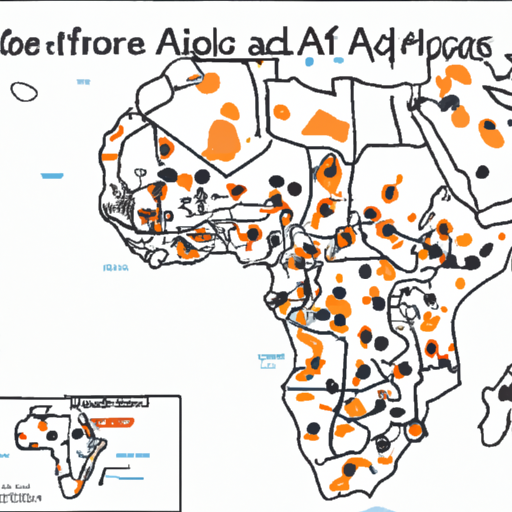A Peek Into The Life of African Wild Dogs
You may know them as painted wolves or Cape hunting dogs, but their official name is African wild dogs, and they lead a fascinating life. With their large rounded ears, mottled fur pattern in shades of red, black, brown, white, and yellow, they are a sight to behold. Yet, their beauty is matched by their vulnerability. With less than 7,000 left in the wild, their survival hangs in the balance.
Unraveling The African Wild Dogs’ Habitat
African wild dogs favor the wide-open spaces of sub-Saharan Africa. They are found in countries such as:
- Botswana
- Namibia
- Zimbabwe
- Tanzania
- Kenya
They thrive in a variety of habitats, including grasslands, savannas, and woodland areas. However, they avoid dense forests and deserts due to the lack of prey and harsh living conditions respectively.
| Habitat | Countries |
|---|---|
| Grasslands | Botswana, Namibia |
| Savannas | Zimbabwe, Tanzania |
| Woodlands | Kenya |
The Challenges Faced By African Wild Dogs
Like any caregiver, you would understand the importance of a safe and nurturing environment. However, the African wild dogs face numerous threats that make their lives precarious, including:
- Habitat fragmentation
- Disease transmission from domestic dogs
- Conflict with human activities
These risks have led to a significant decline in their population, making them one of the most endangered carnivores in Africa.
Conservation Efforts: A Ray of Hope
There are numerous organizations working tirelessly to protect the African wild dogs. Their efforts include anti-poaching patrols, community education, habitat restoration, and disease control. These initiatives are crucial for the survival of this endangered species, breathing a new lease of life into their dwindling population.
Frequently Asked Questions (FAQs)
Q: How many African wild dogs are left in the wild?
A: There are less than 7,000 African wild dogs left in the wild.
Q: What are the primary threats to African wild dogs?
A: The main threats include habitat fragmentation, diseases from domestic dogs, and conflict with human activities.
Q: What steps are being taken for their conservation?
A: Measures include anti-poaching patrols, community education, habitat restoration, and disease control.
This journey through the lives of African wild dogs paints a picture that is both enchanting and alarming. As a caregiver, your empathy for these creatures might inspire you to contribute in some way to their preservation. After all, every life matters, be it human or animal.



